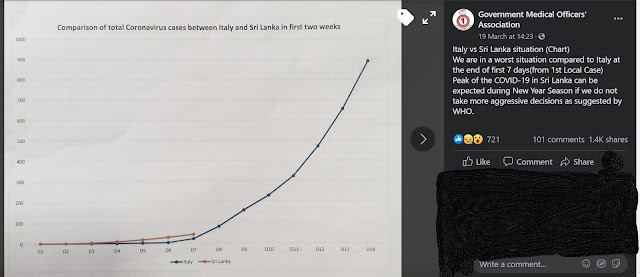Coronavirus: The Basics
A simple Q & A explaining everything you would want to know about the Coronavirus SARS-CoV2, by Peter Piot, Director, London School of Hygiene & Tropical Medicine.
Source & full article:
https://www.lshtm.ac.uk/newsevents/expert-opinion/100-questions-peter-piot-lshtm-director?linkId=85296293
What is different with SARS-CoV2 compared to other coronviruses?
Source & full article:
https://www.lshtm.ac.uk/newsevents/expert-opinion/100-questions-peter-piot-lshtm-director?linkId=85296293
What is different with SARS-CoV2 compared to other coronviruses?
SARS-CoV2 is different in 4 critical ways:
First, many infected people have no symptoms for days, so they can unknowingly infect others, and we don’t know who to isolate. This is very worrisome because SARS-CoV2 is highly infectious.
Second, 80% of the time, COVID-19 is a mild disease that feels like a minor cold or cough, so we don’t isolate ourselves, and infect others.
Third, the symptoms are easily confused with the flu, so many people think they have the flu and don’t consider other possibilities.
Fourth, and perhaps most importantly, the virus is very easy to spread from human to human because in the early stages it is concentrated in the upper throat. The throat is full of viral particles so when we cough or sneeze, billions of these particles can be expelled and transmitted to another person. The new virus appears to spread as easily the flu.
Read more about other symptoms and how to protect yourself & others here:
https://www.hopkinsmedicine.org/health/conditions-and-diseases/coronavirus/coronavirus-facts-infographic
What are the advantages of masks when used properly and who should wear masks?
The best masks, carefully fitted and worn properly, slow down the spread FROM sick people coughing. Meaning, the mask is not to protect you from other people; it is to protect other people from you. It is a courtesy to others to wear a mask when you get what you think is a cold, and you start coughing. Masks have an additional benefit: they make it less likely that you will touch your mouth, so it becomes less likely that if you have the virus on your hands, you will transfer it into your body.
What is the main symptom that people should be on the lookout for?
Coughing is the #1 symptom.
What other ways can we slow down the spread of the virus?
Good hygiene and common courtesy can slow down the spread. In addition, “social distancing” measures — such as working from home, not taking a plane, closing schools, and banning major gatherings — will help slow the spread of SARS-CoV2.Read more about other symptoms and how to protect yourself & others here:
https://www.hopkinsmedicine.org/health/conditions-and-diseases/coronavirus/coronavirus-facts-infographic
Which groups of people are most at danger here?
The older you are, the higher your risk. Also at greater risk are people with underlying diseases such as diabetes, chronic obstructive lung disease and pulmonary disease or cardiovascular disease or immune deficiencies. What are the advantages of masks when used properly and who should wear masks?
The best masks, carefully fitted and worn properly, slow down the spread FROM sick people coughing. Meaning, the mask is not to protect you from other people; it is to protect other people from you. It is a courtesy to others to wear a mask when you get what you think is a cold, and you start coughing. Masks have an additional benefit: they make it less likely that you will touch your mouth, so it becomes less likely that if you have the virus on your hands, you will transfer it into your body.
Should I be worried that I’m going to get COVID-19?
If you’re not at high risk, I wouldn’t worry too much, but I would do everything I can to avoid becoming infected as you don’t know individual outcomes. Everyone is eventually going to be at risk for acquiring this infection in the next few years, just as no one avoids the common cold or the flu over time. So all of us should be ready to stay home at the first signs.
If everyone is going to get the new virus, why try to avoid getting it?
We want to slow down the infection, which means slow down the number of new cases and total cases so our hospitals can handle the most affected patients without getting overwhelmed or turning away patients with other types of illnesses that require immediate attention.
The good news..
1. Modern biology is moving at breakneck speed.
2. In addition to the public health community worldwide, including the World Health Organization, Government leaders at the highest levels are focusing on the threat.
3. We isolated the virus in days and sequenced it quickly. 4. I am confident we will soon have a treatment. 5. We are hopefully going to have a vaccine. 6. This is truly the age of modern communication. That can help us, as long as we debunk fake and dangerous news.
Are there more pandemics in our future?
Definitely yes. This is part of our human condition and of living on a “virus planet.” It is a never-ending battle. We need to improve our preparedness. That means committing ourselves to seriously invest in pandemic preparedness and building a global fire brigade, long before the house catches on fire next time.

Comments
Post a Comment